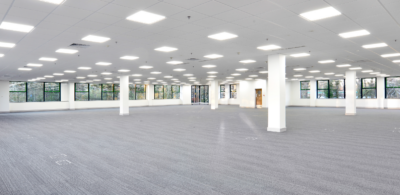Have you ever tried to renegotiate your office lease but you were unsure what to ask for? Maybe you thought that because you were an existing tenant, you didn’t have the right to ask for the same things a new tenant might negotiate. That isn’t the case. It doesn’t matter if you are a new tenant or have been a tenant for decades; you should always consider four key items when renegotiating a lease with your landlord.
New Rental Rate
This will obviously depend on market conditions, but there could be an opportunity to ask for a reduction in your rent – especially if you signed a new lease right before the 2008 downturn. Chances are you’ve incurred annual bumps and are now paying an above-market rate. Your landlord might say no, but at least you can feel better that you asked. Conversely, in a market that is experiencing rent growth, you want to make sure that you rent doesn’t escalate to a level that makes you uncomfortable. Make sure to use recent comparables as well when discussing new rates.
Free Rent
A popular concession these days is free rent. It’s not uncommon to ask for a few months, but it will really depend on the length of your new lease. Don’t go hog wild here; you don’t want to ask for too much, because it will cause a cash flow disruption to your landlord since you are already paying rent in their building. A free month or few will help bring your average rate down, and might help bridge the gap while negotiating with your Landlord.
Tenant Improvements
If your landlord contributed a healthy tenant improvement package on your original lease, then they might want to keep the tenant improvement allowance to a minimum on the renewal. The amount spent on a new lease should be less than what was initially spent. Take inventory of what you think you will need going forward. Maybe the carpet is worn, or the walls are marked. Maybe you need to turn two smaller offices into a conference room. These aren’t very big items, and it is okay to ask for the landlord to invest in them if you’re going to commit to a new lease. Conversely, if you are going to commit to a long-term lease (10-15 years), you can ask for substantial improvements. It’s a good time to reimagine your workplace environment, like many companies are doing today.
New Base Year
If your lease is a “gross lease,” you’ll most likely pay escalations over your base year. Basically, your operating expenses (also known as common area maintenance charges, or CAMS) have increased since you signed your lease. You pay a portion of those increases every year. You can request that your landlord give you a new base year! But before you do, confirm with the landlord that you are in fact paying escalations, as a new base year might not be required.
Every landlord has a different financial position on their property, which often dictates the concessions they are comfortable granting. You should ask for these items (and possibly more) when discussing your renewal with your landlord. After all, there is no harm in asking, and you can always settle for something less as long as it gives you what you need moving forward. Most importantly, make sure to hire a trusted real estate advisor who can educate on these items, and many more that may benefit your business.
The information contained herein has been obtained from sources deemed reliable. While every reasonable effort has been made to ensure its accuracy, we cannot guarantee it. No responsibility is assumed for any inaccuracies. Readers are encouraged to consult their professional advisors prior to acting on any of the material contained in this report.

 Colliers Insights Team
Colliers Insights Team

 Aaron Jodka
Aaron Jodka
 Amber Merrigan
Amber Merrigan
 Andrew Steele
Andrew Steele